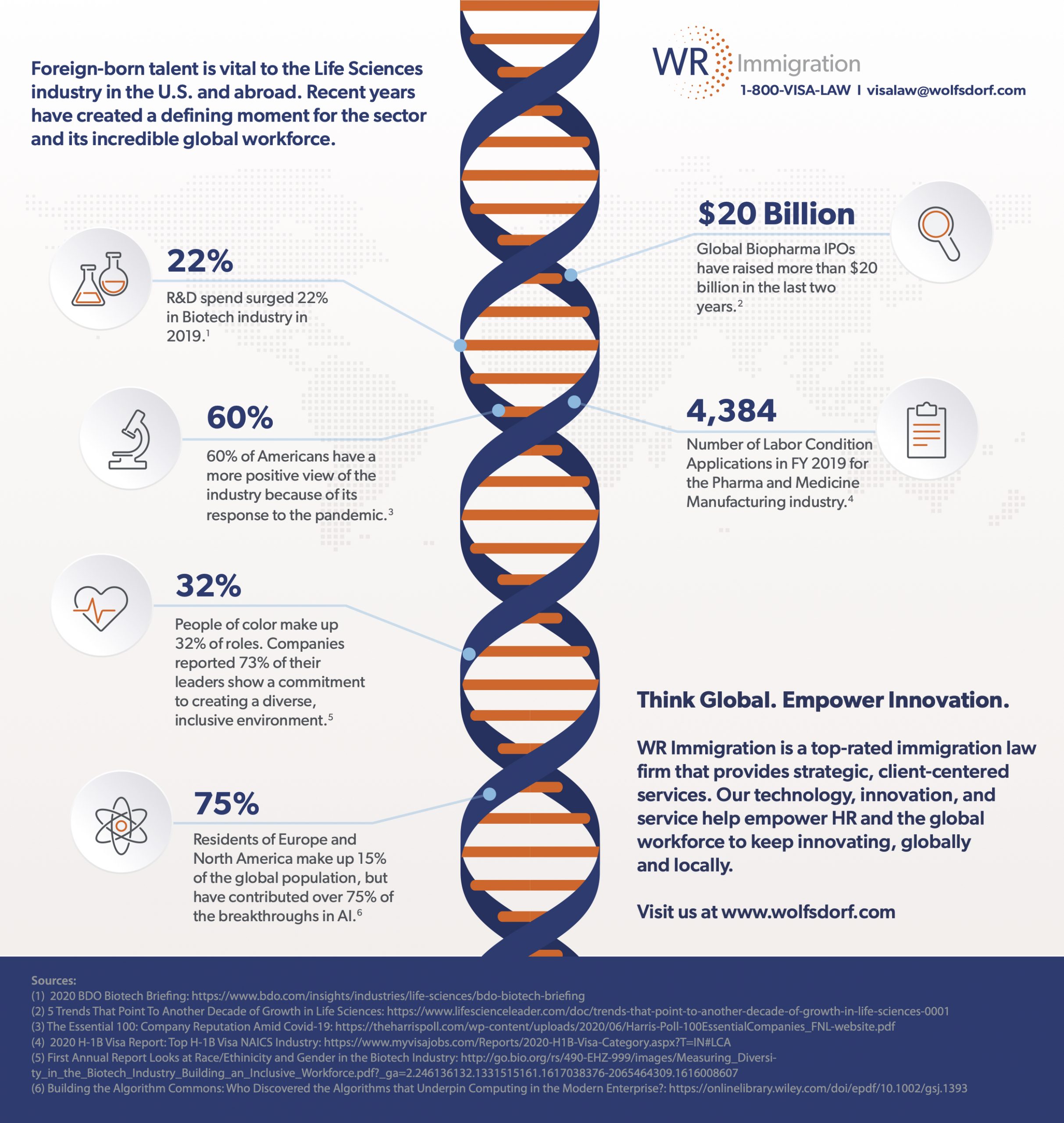It has been quite a year for the entire world, but it has been a defining year for life sciences companies. Under incredible pressure and a global microscope, the industry has come out more resilient and stronger than ever, thanks in large part to incredible talent.
We see six trends that show how the immense growth ties to the right global workforce.
Scientific breakthroughs continue to rise, R&D dollars surge
The world’s biggest life sciences companies worked together this year like never before. In a unified race to find an effective Covid-19 vaccine, information sharing across usual boundaries was required to meet the public’s most pressing health crisis. Even before the pandemic took hold, research and development spend was up 22%. Then came greater demand for innovation and partnerships amid the pandemic.
Increased investor risk and confidence
Scientific breakthroughs have sustained investor enthusiasm for global life science companies. Global biopharma IPOs have raised more than $20 billion — each year bringing in more than in any previous year during the last decade, according to BioWorld data. In the first three quarters of 2019, early- and angel-/seed-stage investments accounted for around 60% of VC pharma and biotech deals, up from about 45% in 2009, according to data from PitchBook.
Public opinion and the response to the pandemic
Pharma’s response to the pandemic also created a sea change in public perception. After decades of a lagging reputation in the public eye and consistent public distrust, the speed and manner in which Covid-19 was handled shifted the view of the industry. 60% of Americans have now a more positive view of the industry because of its response to the pandemic.
People are better able to understand what a pharmaceutical company does and can do for society, with companies moving down a path to create real, progressive change.
The global talent pool
Foreign-born talent makes up a significant piece of the talent pool, and the U.S. life sciences industry would simply not be as powerful without it. At the highest level, companies responsible for developing the Covid-19 vaccine are led by trailblazers from outside of the U.S. Moderna’s co-founder and chairman, Pfizer’s CEO, and BioNTech co-founders are all immigrants – and Moderna’s co-founder, Noubar Afeyan, attributes his “immigrant mindset” to his success.
But the impact of global talent runs throughout organizations. According to the myvisajobs.com 2020 H-1B visa report, there were 4,384 Labor Condition Applications for the Pharmaceutical and Medicine Manufacturing Industry in FY 2019, a 12.4% increase over the previous year. Under the Biden administration, changing regulations and openings for STEM talent are likely to push that number even higher.
Increased commitment to workforce equity and diversity
Currently, people of color make up 32% of roles in Life Sciences, and there is an evolving societal status quo when it comes to diversity and equity in the workforce. According to the Biotechnology Innovation Organization report “Measuring Diversity in the Biotech Industry: Building on an Inclusive Workforce,” responding companies reported that 80% of their employees and 73% of their leaders demonstrate a commitment to creating an inclusive environment. What’s more, 46% of respondents say that diversity and inclusion is one of their organization’s stated values or priorities.
Immigrants’ impact on integrated technology
Artificial Intelligence is a lynchpin for current and future life sciences R&D and distribution — and many of the breakthroughs in AI development are driven by foreign-born scientists. MIT researchers highlight that while residents of Europe and North America make up just 15% of the global population, they’ve contributed over 75% of the breakthroughs in AI in the last 30 years. Researchers from Georgetown University said, “Historically, immigrants have helped America lead the world in technological innovation. Foreign-born talent fuels the U.S. AI sector at every level.”
Foreign-born talent is vital in the U.S. talent marketplace, and especially the life sciences industry.
If you are looking to manage or recruit foreign-born talent and have questions about the visa process, we are always here to connect with you.



